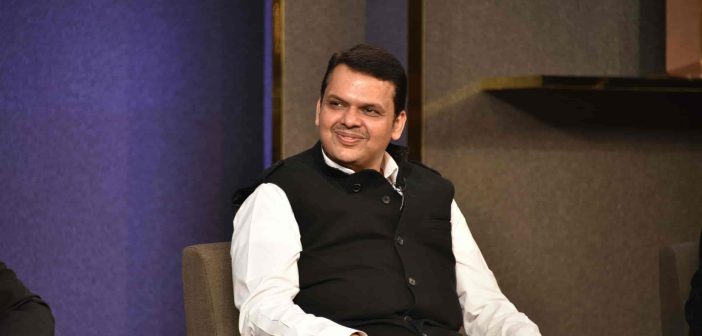Maharashtra Chief Minister Devendra Fadnavis praised Finance Minister Nirmala Sitharaman on Saturday for presenting a dream budget for the middle class, providing significant relief by making income up to $120,000 tax-free.
Fadnavis claimed that the Budget would transform rural India and encourage citizen-centric investment. He highlighted the proposed allocations, including $68.3 million for the Maharashtra Rural Connectivity Improvement Project, $10 million for the Maharashtra Agribusiness Project, $109.4 million for the Economic Cluster, and $18.6 million for the Upsa Irrigation Scheme.
“This is a historic Budget for a developed India, a comprehensive and developed India. It will deepen and further strengthen the economy, providing relief to the middle class, salaried workers, youth, farmers, and hardworking people. The provisions of this Budget will enable many ambitious policies of Maharashtra, which will benefit greatly from the new policies, especially since it is the startup capital,” he added.
Fadnavis emphasized that increasing the income tax limit would inject money into the economy, boosting demand. The decision to raise the taxable income limit from $70,000 to $120,000 is historic. Under Prime Minister Narendra Modi’s leadership, this limit was previously increased from $25,000 to $70,000. The journey to $120,000 is incredible and effective for the Indian economy, providing great relief to the middle class, salaried workers, and youth. This will create vitality in the market, increasing purchases, demand, production, and employment, especially benefiting the MSME sector.
He also praised the proposals for the agriculture sector, including special incentive schemes for 100 districts, promotion of oilseed production, and a policy of 100% procurement of goods. Fishermen can now get interest-free loans of up to $50,000, encouraging business growth and investment in agriculture, creating new opportunities for farmers and the MSME sector.
“Maharashtra is the capital of startups. A loan limit of $2 million has been set for startups, strengthening the startup ecosystem and generating employment opportunities. The state’s progress in this area will be even stronger,” he added.
Fadnavis mentioned a new infrastructure policy for developing projects, benefiting from the 50-year interest-free loan scheme for infrastructure projects. Public-Private Partnership projects will encourage private sector investment, leading to significant employment generation.
Deputy Chief Minister Eknath Shinde said the Budget assures the realization of a developed India envisioned by Prime Minister Narendra Modi. “The relief for the common working class in the Budget is unprecedented. With complete tax exemption on income up to $120,000, the footsteps of Lakshmi will be noticed in every household. I congratulate Union Finance Minister Nirmala Sitharaman for presenting this Budget that will strengthen an all-round self-reliant India, and I thank her on behalf of all the working people of Maharashtra,” he added.
Shinde emphasized that the country’s progress will continue to rise as education, health, and agriculture sectors benefit from the Budget’s innovative provisions. This is the roadmap for a strong India, with auspicious signs of prosperity under Prime Minister Modi’s leadership.
Deputy Chief Minister Ajit Pawar said the Budget lays the foundation for a developed India, taking the country on the path to becoming an economic superpower. “In the Union Budget, income up to $120,000 has been exempted from tax, providing significant relief for millions of middle-class people. Thanks to Prime Minister Narendra Modi and Finance Minister Nirmala Sitharaman for substantial funds for infrastructure projects in Maharashtra,” he added.
Pawar noted that Maharashtra is receiving a large development fund from the Union Budget, laying a strong foundation for infrastructure projects and boosting development. The Budget provides development opportunities for all sections of society, including farmers, laborers, traders, entrepreneurs, women, students, and the common man.




